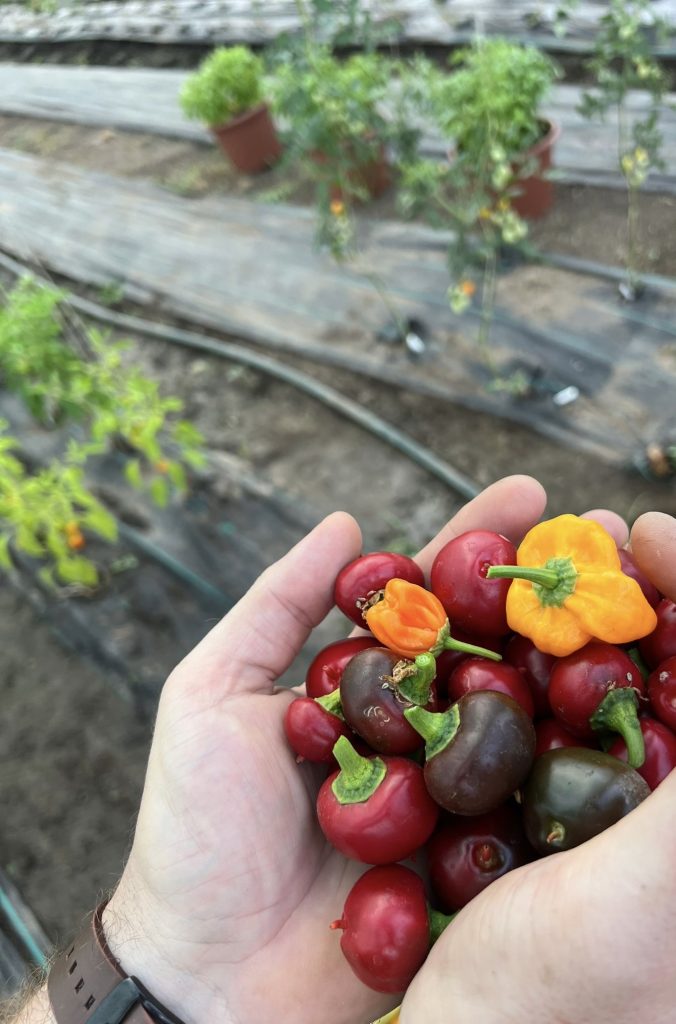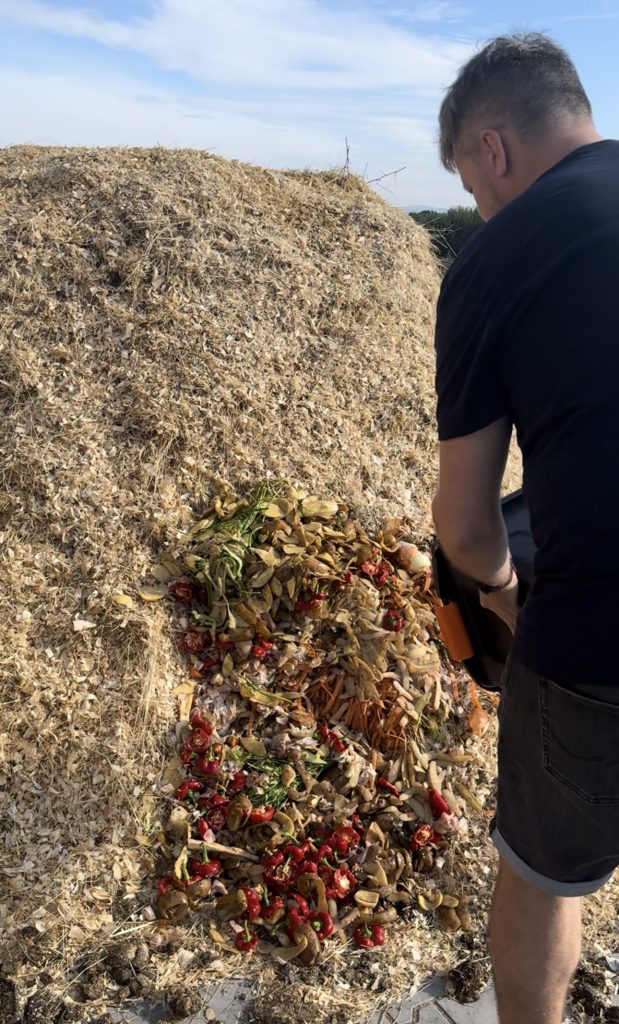Local, Hungarian ingredients, carefully selected from small-scale producers, play a central role in the life of Tati farm-to-table restaurant. However, this year has brought a special milestone for us: we launched our own composting facility, which enables us to fully recycle the green waste generated in our restaurant. This step not only strengthens our commitment to sustainability but also creates a natural cycle that leads from the farm to the kitchen and then back to the soil.

The Foundations of the Farm-to-Table Concept
The term “farm-to-table” has become increasingly popular in recent years. For Tati, it is not just a trend but a fundamental philosophy. The essence of this concept is to bring ingredients to the restaurant’s table with the shortest possible route, minimal intermediaries, and maximum freshness. This means that the majority of vegetables, fruits, and herbs featured in Tati’s offerings come directly from the producers and our own farm, ensuring the best quality and flavor for our guests.
The Importance of Composting
The pursuit of sustainability does not stop at sourcing ingredients. Significant amounts of green waste are generated during the operation of restaurants, which most often simply discard. However, thanks to Tati’s composting facility, we can now also recycle this waste.
During composting, green waste—such as vegetable scraps, fruit peels, and coffee grounds—decomposes and transforms into valuable nutrients that can be returned to the soil. This process not only reduces the amount of waste but also contributes to improving soil quality.

Soil Renewal: The Role of Compost
The humus produced during composting is rich in nutrients essential for the healthy growth of plants. Soil fertility is closely related to the amount of organic matter it contains, and compost plays a significant role in this. Compost increases the humus content of the soil, improves its structure and water retention capacity, and promotes the revival of the soil’s microbial life.
The vegetables and fruits grown on Tati’s farm are not only healthy and delicious because they come directly from our soil to our table, but also because the soil they grow in is rich and nourishing. This cycle allows us to serve dishes that not only delight the taste buds but also respect nature.
Closing the Loop: Returning to Nature
With the introduction of the composting system, the cycle has indeed closed in Tati’s life. The green waste generated in the restaurant’s kitchen is collected, composted, and then returned to our farm, where it is reused in the soil. This process not only reduces waste but also actively contributes to sustainable agricultural practices.
The garlic, tomatoes, various peppers, and herbs grown on our farm are all now growing in this enriched soil and will soon make their way to the restaurant’s table.
Why Composting Is Important for Restaurants
Composting not only serves sustainability but also brings numerous other benefits to restaurants. First, it reduces waste management costs, as composted materials do not end up in landfills, requiring fewer waste disposal services. Second, using compost-enriched soil reduces the need for fertilizers in the long run, making production more economical and environmentally friendly.
It is important for restaurants to let their guests know that what they find on their plates is not only delicious and fresh but also environmentally conscious. At Tati, this message is conveyed in every dish. Through composting, waste is given new life and returns to the natural cycle, which we respect and support.
Building a Sustainable Future
For Tati, composting is not just another step towards sustainability but a process deeply intertwined with our core values. We believe that respecting nature and responsibly using resources will ensure the enjoyment of quality food not only for the present generation but also for future ones.




